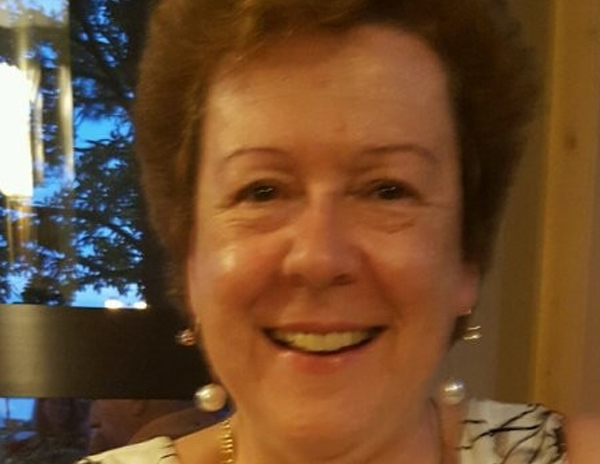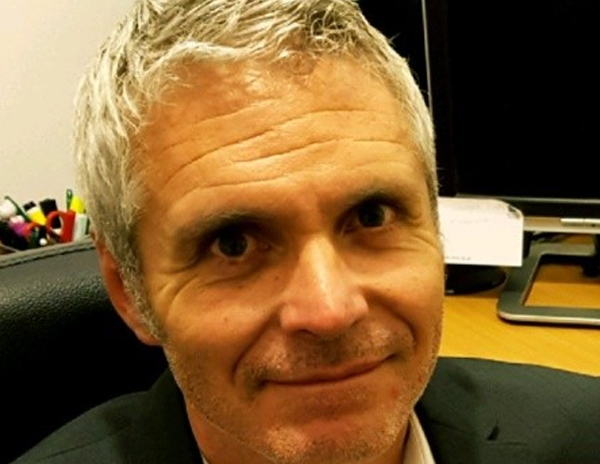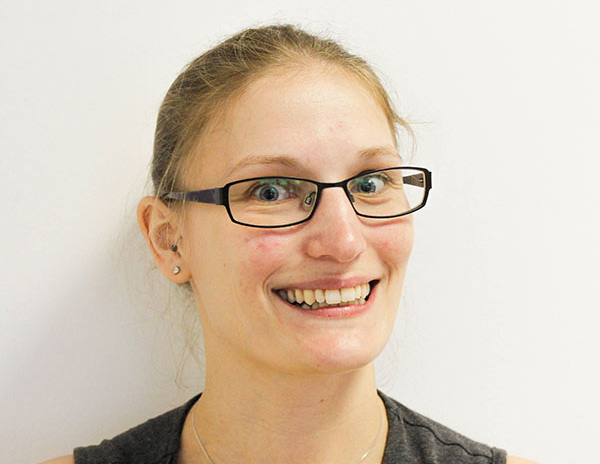Our Social Work in Schools Team would not be appropriate for:
We advise that you contact the local authority or the police with urgent safeguarding concerns.
As our Social Work in Schools Team is made up exclusively of qualified social workers, their experience and knowledge base within education settings achieves the best outcomes for children, young people, families and education settings through planning for the future. Our Social Work in Schools Team helps children and young people to understand their emotions and issues within their life to reduce risk and support the social, emotional and mental health of individuals.
EHP is registered with all major professional memberships.
Social work helps individuals, families, groups and communities through building and developing knowledge and skills to have an increased ability to resolve problems. The scope of social work extends past safeguarding and supports people of all ages. Support and advocacy are included in social work to protect people from abuse or neglect, and to enable individuals to live as independently as possible through preparing for adulthood from the earliest age.
With high aspirations, and the right support, the vast majority of children and young people can go on to achieve successful long-term outcomes in adult life. Local authorities, education providers and their partners should work together to help children and young people to realise their ambitions in relation to:
SEND Code of Practice, 2015
EHP's Social Work in Schools Team often work with children and young people who:
Our social workers have differing backgrounds which means that our Social Work in Schools Team can work with children and young people who do not have any of the above.
Our specialist services can be accessed by education, health and other professions working with children and young people.
The children and young people our Social Work in Schools Team support can be experiencing many circumstances, challenges and issues. Below are examples of the circumstances children and young people are experiencing, or have experienced which could lead to our involvement:
Circumstances within a child or young person may include:
Circumstances which can impact on social, emotional and mental health occurring within a family can include:
Within education settings there are many circumstances happening to children and young people which could impact on social, emotional and mental health, such as:
Our community is diverse which means that circumstances in a child or young person's community could have an impact on social, emotional and mental health, and can include issues which many of us have not experienced before, such as:
The above list is not exhaustive, and staff should always be vigilant to changes in behaviour, attitudes and physical appearance with all children and young people.
Some young people will have experienced traumatic events such as abuse, violence, accidents, injuries, asylum seeking or natural disaster. To give an idea of scale, in an average classroom, 10 young people will have witnessed their parents separate, eight will have experienced severe physical violence, sexual abuse or neglect, one will have experienced the death of a parent, and seven will have been bullied.
What works in promoting social and emotional well-being and responding to mental health
problems in schools? 2015
Our Social Work in Schools Team is made up of registered social workers who work within education settings to support schools in keeping children and young people safe. Our Social Work in Schools Team's role is to reduce safeguarding risks through assessment and input whilst increasing understanding of children and young people's needs within education staff.
At EHP our Social Work in Schools Team work with education settings and other SEMHS teams to improve the outcomes of children and young people through:
EHP's Social Work in Schools Team promotes social development and change to empower children, young people and education staff. EHP's SEMHS services provide a broad range of assessments and early interventions which, in some circumstances, negates the need for statutory social work intervention. Providing specialist individual, group and systemic services our Social Work in Schools Team improves the outcomes of children and young people.
Professionals should also be alert to other events that can lead to learning difficulties or wider mental health difficulties, such as bullying or bereavement. Such events will not always lead to children having SEN but it can have an impact on wellbeing and sometimes this can be severe. Schools should ensure they make appropriate provision for a child's short-term needs in order to prevent problems escalating. Where there are long-lasting difficulties schools should consider whether the child might have SEN.
SEND Code of Practice, 2015
Positive health and education attainment is facilitated within early years settings due to the opportunities for early needs identification and intervention by our Social Work in Schools Team. Working with early years staff our Social Work in Schools Team maximise early outcomes through providing input with regards to spotting red flags, deciding on levels of need and planning for the future.
Our Social Work in Schools Team provides early interventions, parental work and training within primary schools to promote good physical and mental health alongside educational progress. In primary schools our main focus is often on:
Our social workers will decide on the most appropriate intervention according to the individual child and their circumstances. We work with children, carers and education staff.
In secondary schools our Social Work in Schools Team offer a broad range of services for individual and group work, such as:
Providing instant access to our Social Work in Schools Team facilitates early needs identification and swift effective interventions. EHP's Social Work in Schools Team are adaptable to support the needs within your school and reduce risk factors.
In PRUs the role of our Social Work in Schools Team often includes increasing understanding in students and staff around the causes of behaviours in addition to specialist support around the regulation of their emotions. As children and young people in PRUs have complex needs, specialist assessments would be used to correctly identify underlying needs. Family work is beneficial as the challenges faced by a child or young person within a PRU could be directly related to a situation within their home environment.
Within a SEND school our Social Work in Schools Team's role will depend on the needs of the students and their parents. Family work within a SEND environment is important due to the extra stresses which can be created by the specialist needs within the family. Our Social Work in Schools Team will also be able to offer all services previously mentioned, although there may be situations when an additional specialist may be required for appropriate adaptation of resources.
Within post-16 settings our Social Work in Schools Team supports individuals in preparing for their future. Preparing for the future can include:
Post-16 settings are the time to make sure that young people are as prepared as they can be for their future in order to lead a happy, healthy and fulfilled life.
In order to reduce risks to children and young people our Social Work in Schools Team determines risk according to the appropriate framework as set out by specific local authorities. For example, for an education setting based within the Manchester local authority our Social Work in Schools Team would determine risk according to the multi-agency need and response framework created by the Manchester Safeguarding Children Board, 2015.
There are five levels of need in relation to safeguarding as defined by the multi-agency need and response framework. Internally, EHP's Social Work in Schools Team use the descriptions of levels of need provided by the Manchester Safeguarding Children Board to maintain a consistent approach. The number of levels vary between local authorities and we will work within the same guidelines as the local authority education settings are located. Each local authority will have a variation of the Manchester descriptions of need in order to categorise the level. Within Manchester the level of need is related to the requirement of specialist services.
Below are examples of the levels of need within Manchester.
Level 1 includes children and young people whose needs are being met, or whose needs can be met, by universal services. Universal services refers to those which are accessible to all, such as the NHS.
Children, young people or families with additional needs that can be met by a single agency providing additional information, support and guidance, or by signposting to an additional agency covers Level 2.
In Level 3, needs become more complex meaning that children, young people or families that need a co-ordinated programme of support from more than one agency.
Level 4 defines children, young people or families who require intensive and co-ordinated support for complex issues and / or where support at Level 3 has not improved outcomes. At Level 4 an individual can be classed as a child in need.
Level 5 defines children or young people at risk of or suffering from significant harm due to compromised parenting, or whose needs require acute services or care away from their home. Individuals at Level 5 are classed as a child in need.
There is not necessarily a gradual escalation through the levels as children and young people can go from being Level 1 to being Level 5 due to an isolated event.
When determining what level a child or young person is then it is important for our Social Work in Schools Team to fully consider the child, young person, and family experience. Our Social Work in Schools Team ask the following questions to support decisions:
If you do not know a person available to determine the level of need for a child or young person, then EHP's Social Work in Schools Team can help.
At any stage that you have concerns about a child or young person you can refer to us. Through providing education settings with instant access to our Social Work in Schools Team we provide services for children, young people or families:
Wherever possible we like to take a preventative and proactive approach through early needs identification and intervention.
We understand that circumstances and issues around children, young people and safeguarding can be complex which is why we support education settings in confidently handling more issues in house through increasing knowledge around children's services and other support services. Our Social Work in Schools Team provides non-statutory input for all children and young people. We can work with local authorities to complement support for children and young people who are currently receiving statutory social work support. If you would like to learn more about referring a child or young person to our Social Work in Schools Team then please get in touch to talk to a member of our team.
Any professionals with concerns about a child's welfare should make a referral to local authority children's social care. Professionals should follow up their concerns if they are not satisfied with the local authority children's social care response.
Working together to safeguard children, 2015
Section 17 of the Children Act (1989) states that a child in need requires significant specialist provision and support in order to maintain or achieve an acceptable level of development or health. A child or young person with a disability may also be classed as a child in need. Usually child in need status follows multiple concerns from school or an alternative setting around low school attendance, high hunger levels, poor hygiene and appearance.
The aim is to use all the information to identify difficulties and risk factors as well as developing a picture of strengths and protective factors.
Working together to safeguard children, 2015
When an individual reaches child in need status then the local authority have a responsibility to assess and provide services. The number of levels may vary between local authorities, but section 17 criteria will remain the same.
Some children in need will be well supported and have their needs met by their families without the requirement for Social Work intervention. Other children in need will have more acute needs and will require social work support.
Our Social Work in Schools Team can screen and escalate cases where the threshold for Section 17 assessment and intervention is met and a child or young person requires local authority statutory social work involvement.
Our Social Work in Schools Team deliver a broad range of assessments as part of their role. Assessments provide information regarding personal beliefs about themselves, attachment needs and individual strengths. Specific social work assessments include:
Our Social Work in Schools Team are experienced and knowledgeable enabling them to use the results from assessments to make appropriate recommendations.
Every assessment should be focused on outcomes, deciding which services and support to provide to deliver improved welfare for the child.
Working together to safeguard children, 2015
Our Social Work in Schools Team can deliver many interventions, specifically in relation to social, emotional and mental health. An example of interventions include:
Interventions are chosen based on identified needs. If you are unsure of which intervention would be required then please get in touch to find out more in terms of the interventions our Social Work in Schools Team can provide.
Our Social Work in Schools Team can support your school in implementing or adapting systemic approaches towards safeguarding, family work and social, emotional and mental health. Our Social Work in Schools Team also provides training on topics which are relevant to your school.
Our Social Work in Schools Team have packages of set training and workshops:
All training will be made relevant to your setting, and it is possible to design bespoke training specifically for the needs present within your education setting. Some training and workshop sessions are recommended for parents and carers.
Our training is available on and off site for education settings and organisations in relation to health, psychology and education.
... all staff members should receive regular safeguarding and child protection updates (for example, via email, e-bulletins, staff meetings) as required, but at least annually, to provide them with relevant skills and knowledge to safeguard children effectively.
Governing bodies and proprietors should recognise the expertise staff build by undertaking safeguarding training and managing safeguarding concerns on a daily basis. Opportunity should therefore be provided for staff to contribute to and shape safeguarding arrangements and child protection policy.
Keeping children safe in education, 2016
EHP's Social Work in Schools Team is a cost effective service which offers schools:
Our Social Work in Schools Team brings many benefits to schools, including:
Having immediate access to our Social Work in Schools Team ensures that you receive a swift service which can keep you included during the process so you are not left in the dark about how best to support an individual.
We usually recommend that the designated safeguarding officer, or safeguarding lead make the referral to our Social Work in Schools Team as they will have complete access to the relevant information we may need to know. SENCOs and members of the senior leadership team can also make referrals.



Our services can be funded through a variety of ways.
EHP's Social Work in Schools Team is a specialist service based within your education setting to provide maximum impact. If you require additional information about our Social Work in Schools Team then please get in touch to talk to a member of our team.
As EHP's Social Work in Schools Team have a varied role within education and health, they work with many professionals, including:
EHP's social work team works alongside each specialist within our multidisciplinary team, to provide comprehensive support packages to education settings.
Do our Social Work in Schools Team provide services for children with looked after and adopted status?
Yes, our Social Work in Schools Team provide a broad range of specialist services for children with looked after and adopted status. Supporting children with looked after and adopted status is one part of being a social worker and this experience leads to a broad understanding of needs. Read more about our specific Looked After Team and Adoption Team.
If you would like to find out more about the services we offer or to book a free initial discussion then please contact us on email office@ehp.org.uk
If you would like to find out more about the services we offer or to book a free initial discussion then please contact us on email office@ehp.org.uk
EHP © Copyright 2026. ALL Rights Reserved.
Part of Tx Group

At EHP we thrive on feedback. We're happy to hear that this page has been helpful to you, would you like to leave some feedback?
At EHP we thrive on feedback. We're sorry to hear that this page wasn't what you where looking for, how can we improve this service?
At EHP we thrive on feedback. We're sorry to hear that there was something on the page you found unsatisfactory, how can we improve this?




